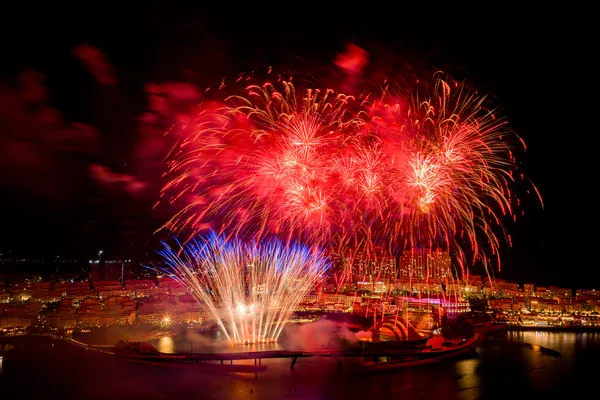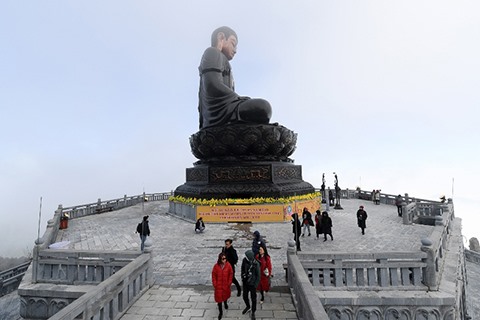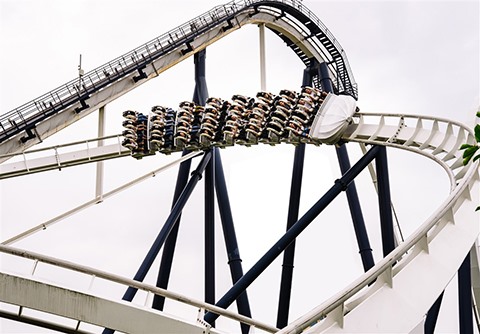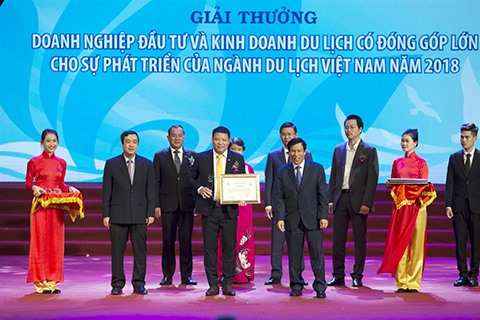 Brandinfo
Brandinfo

In recent years, a number of outstanding, newly developed tourism projects have boosted the appeal of both established and emerging destinations in Vietnam, drawing more international visitors, and boosting domestic tourism.

|
Buddha Shakyamuni statue at Fansipan Legend - Photo courtesy of Sun Group
Elevating the ‘roof of Indochina’
For many years, Sa Pa in Lao Cai Province had been a gateway town to the north of Vietnam—a heavenly realm of stunning mountains and lush valleys. The most intrepid of travellers came to conquer Fansipan, also known as the “Roof of Indochina”.
At a height of 3,143metres, scaling the precipitous slopes of Fanispan—a national symbol of Vietnam—to reach the peak was a two-day expedition that could only to be undertaken by those in good health.
But in February, 2016 that would change overnight with the opening of a three-rope cable car system that could take visitors from the centre of Sa Pa to the peak of Fansipan in under 20 minutes. Developed to the tune of thousands billion dong by Sun Group, Vietnam’s premier developer of luxury resorts, entertainment and leisure complexes, the cable-car system transformed the tourism experience for visitors to Sapa.
Stretching 6,292.5 meters (making it the world’s longest non-stop three-rope cable car in the world) and with a capacity to take 2,000 tourists per hour up a breath-taking 1,410m in elevation, riding in the cabin is exhilarating with breathtaking views of the Hoang Lien mountain range as well as the gorgeous terraced rice fields, valleys and villages, where hill tribes still thrive today. Adding further tourism appeal to Sapa, there’s also a new complex of spiritual buildings and shrines at the very top of Fansipan, also developed by Sun Group as part of Sun World Fansipan Legend.
Once a sleepy town, now Sapa is buzzing with tourists. In 2016, Lao Cai province welcomed 2.7 million tourist arrivals, generating VND6,405 billion in revenue. In 2017, there were 3.5 million visitors, generating VND9,443 billion in revenue, accounting for 121% of the year’s target, and a growth of 23.7% compared to the previous year. In 2018, the number of tourists coming to Sapa town alone reached 3.2 million, more than twice the number recorded in 2014 when 1.74 million tourists visited.

|
Sunworld Halong Complex - Photo courtesy of Sun Group
A new dawn for travel and leisure in Halong
Sun Group has also directed strategic investment toward Quang Ninh province in the northeast of Vietnam. In 2015, over 7.7 million tourist arrivals visited Quang Ninh—home to Halong Bay, a Unesco World Heritage— generating VND6,548 billion in revenue. By the end of 2018, there were 12.2 million visitors with revenue from tourism reaching over VND24,000 billion.
One of the main factors behind this spike in tourism is another of Sun Group’s major developments, Sun World Halong Complex, an entertainment complex that opened right by the Gulf of Tonkin in 2016. Featuring three parks including the complex of Queen Cable Car, Sun Wheel, and Zen Garden in Ba Deo top, Dragon Theme Park, and Typhoon Water Park, Sun World Halong Complex has an added huge appeal for Halong as a tourism destination. In summer months, the occupancy rate of hotels near the amusement parks is usually between 90% and 100%. While previously visitors may have spent just one afternoon to sail around Halong Bay, now there is much more on offer to keep families and groups entertained.
“It is evident that the entertainment venues and amusement parks developed by Sun Group have contributed to improve the image of Quang Ninh and brought many new tourism attractions to the province,” says Pham Ngoc Thuy, Director of Quang Ninh Tourism Department.
In general, the transformation of tourist destinations—thanks to the strategic investment of Sun Group—has contributed positively to the tourism landscape throughout Vietnam. The group has developed major tourism projects in Phu Quoc and Danang, two of the country’s leading destinations.
In 2007, Vietnam only welcomed about 4.2 million international visitors generating a revenue of VND56 trillion. But by 2017, just 10 years later, Vietnam had become one of the world’s 10 fastest growing tourist destinations, based on international arrivals.
Honoured at Vietnam Tourism Awards

|
It’s notable that the Vietnam Tourism Awards 2018 honored many of the leading enterprises that have made a significant contribution to tourism development in Vietnam, including Sun Group, Vingroup, Thien Minh, FLC, and Muong Thanh. Speaking at the ceremony, Mr Nguyen Van Tuan, Former General Director of Vietnam National Administration of Tourism, said: “In the past six years, Vietnam tourism has made great progress in terms of attracting tourists and investment sources, improving infrastructure, developing tourism products and services, and policy changes, which is boosting tourism property development. In particular, the most prominent factor behind these accomplishments has been the large-scale projects and high-quality, attractive tourism products that have drawn investment from strategic investors and top tourism businesses. Consequently, these investment projects have contributed to improve infrastructure and accommodation units, and create luxury tourism products, that can gradually contribute to the shaping of Vietnam’s tourism brand as well as the attractiveness of destinations in Vietnam.”
Mr. Tuan added that strategic investors have been the game-changers in promoting destinations and changing the face of region. “In Bai Chay, Ha Long, for instance, the launching of major projects invested by Sun Group not only creates excitement, but also generates a spillover effect with higher capacity and prices for hotel rooms. It also helps to stimulate the production, distribution and circulation of goods, and brings other major benefits to residential communities, for example, restaurant owners, shopkeepers, and even motorbike taxi drivers, street vendors.”
Agreeing with this assessment, Mr. Le Cong Nang, Head of Marketing and Communication Department of Vietrantour emphasised: “This significant investment from giant corporations into tourism infrastructure, recreational facilities and tourism development in key destinations such as Sapa, Ha Long, Nha Trang, Phu Quoc, Quy Nhon, Danang has helped travel agencies manage their tours more effectively, enhance service quality, and attract tourists to these destinations. In addition, the construction projects by strategic investors, especially Sun Group, are all large-scale, high-quality and outstanding ones. This increases the capacity and attractiveness of tourist destinations.”
It’s clear that tourism is fast becoming a key economic sector of Vietnam. While there are many challenges regarding its continuing development, there are also opportunities at every turn. Serving a shared goal with government leaders to transform the country’s tourism landscape, strategic investors such as Sun Group have taken the lead on transforming Vietnam into one of the world’s most exciting destinations.




